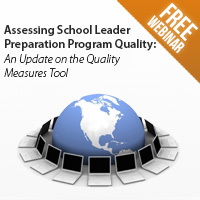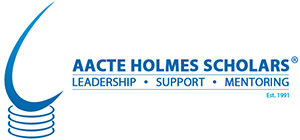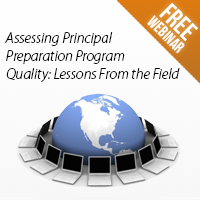05 Feb2014
By Aimee Hall
This post also appears on the AACTE Annual Meeting site.
 Once again, AACTE has partnered with a local charity to give back to our Annual Meeting host community. Indianapolis’ School on Wheels will be collecting donations outside the Conference Community Center at the 2014 AACTE Annual Meeting.
Once again, AACTE has partnered with a local charity to give back to our Annual Meeting host community. Indianapolis’ School on Wheels will be collecting donations outside the Conference Community Center at the 2014 AACTE Annual Meeting.
School on Wheels works to break the cycle of homelessness by providing one-on-one tutoring and educational advocacy for school-aged children impacted by homelessness. Since its founding in 2001, it has trained over 2,200 community volunteers as tutors, provided tutoring to 3,913 school-aged homeless children, and distributed 2,148 backpacks filled with school supplies and 11,351 school uniforms to homeless children. In 2013, School on Wheels was named nonprofit volunteer program of the year by the United Way of Central Indiana.
28 Jan2014
By Aimee Hall
This post also appears on the AACTE Annual Meeting site.
AACTE and TeachingWorks are collaborating on a strand of sessions at the 66th Annual Meeting that will examine the challenges of preparing novice teachers for practice and explore potential solutions. This strand will provide a forum for sharing ideas and learning from programs that are taking on the challenges of building practice-based teacher education. It will also address implications of the Common Core State Standards for teacher preparation.
17 Jan2014
By Omar Davis
The pace of change is quickening as educator preparation programs engage in a variety of reform efforts. Are you interested in learning more about how they are taking charge of change? A major forum at AACTE’s Annual Meeting in Indianapolis will highlight reforms in several programs and the ways they are working with PK-16 partners and communities to meet emerging challenges.
During this forum, the following panelists will share their efforts and partnership work to reinvent programs at their institutions:
17 Jan2014
By Alicia Ardila-Rey
AACTE invites institutions to participate in a job fair for AACTE Holmes Scholars® to be held Sunday, March 2, at the 2014 Annual Meeting in Indianapolis.
AACTE proudly continues to host the Holmes Scholars® Program, one of the great benefits of AACTE membership. This unique program provides mentorship, peer support, and rich professional development opportunities to doctoral students from traditionally underrepresented backgrounds who are pursuing careers in education.
16 Jan2014
By Lisa Johnson Kiefer
 On January 30, from 2:00 to 3:00 p.m. EST, AACTE will host a free webinar for members called “Assessing School Leader Preparation Program Quality: An Update on the Quality Measures Tool.”
On January 30, from 2:00 to 3:00 p.m. EST, AACTE will host a free webinar for members called “Assessing School Leader Preparation Program Quality: An Update on the Quality Measures Tool.”
Presenter Cheryl King, director of leadership for learning innovation at the Education Development Center (EDC), will explain how the EDC’s Quality Measures™ tool has helped school leader preparation programs assess their strengths and weaknesses and improve the quality of their curriculum, pedagogy, and clinical components. This webinar is available to AACTE members courtesy of a grant from the Wallace Foundation as part of its Principal Pipeline Initiative.
10 Jan2014
By Aimee Hall
 The National Association of Holmes Scholars Alumni (NAHSA) invites early-career faculty in education-related fields, particularly AACTE Holmes Scholars® starting their careers and early-career NAHSA members, to participate in a Tenure Academy this spring.
The National Association of Holmes Scholars Alumni (NAHSA) invites early-career faculty in education-related fields, particularly AACTE Holmes Scholars® starting their careers and early-career NAHSA members, to participate in a Tenure Academy this spring.
The academy will be held April 2-3 as a preconference event prior to the annual meeting of the American Educational Research Association (AERA) in Philadelphia, Pennsylvania. The AERA conference runs April 3-7.
10 Jan2014
By Jessica Milton
A major forum at AACTE’s 2014 Annual Meeting will highlight lessons for transforming education in science, technology, engineering, and mathematics (STEM) and for bridging the STEM achievement gap. To advance STEM education in PK-12 and improve access for disadvantaged students, educator preparation programs will have to produce career-ready teachers who have deep content knowledge in mathematics and science and pedagogical skills to teach to the differing needs of students to improve their achievement.
At the forum, a panel of education researchers, teacher educators, and practitioners will identify social and cultural barriers that contribute to persistent education inequities. Additionally, they will discuss effective education policies and innovative initiatives that promote progress in narrowing educational disparities in STEM.
09 Jan2014
By Aimee Hall
 AACTE’s 2014 Speaker Spotlight Session will feature Kris Gutiérrez, professor of literacy and learning sciences at the University of Colorado at Boulder.
AACTE’s 2014 Speaker Spotlight Session will feature Kris Gutiérrez, professor of literacy and learning sciences at the University of Colorado at Boulder.
Gutiérrez uses her expertise to improve the educational condition of immigrant and other underserved students, in both school-based and community settings, and to design effective models for teacher preparation. For more than 15 years, Gutiérrez served as the principal investigator and director of an after-school computer learning club for low-income and immigrant children. She also spent over a decade directing the UCLA Migrant Scholars Leadership Program, a residential summer academic program for high school students from migrant-farmworker backgrounds.
19 Dec2013
By Mary Harrill
A major forum at AACTE’s 2014 Annual Meeting will feature efforts to redesign elementary preparation programs so that they are aligned with current PK-12 school expectations, provide deeper content engagement, and offer pedagogical practices with a greater impact.
Preparing elementary school teachers can be challenging, as they need to be well-versed in many subject areas and particularly attuned to the developmental needs of young learners. Indeed, many preparation programs have struggled to produce coherent curriculum to effectively prepare teacher candidates for the early grades.
18 Dec2013
By Elizabeth Ross
A major forum at AACTE’s 2014 Annual Meeting will examine current efforts to redesign secondary mathematics teacher preparation programs so that they correspond to the pedagogical shifts demanded by the Common Core State Standards.
As states and districts across the country are transitioning to the Common Core, understanding the distinct pedagogical and content-specific shifts is a critical element to implementation and teaching practices—which holds significant implications for educator preparation programs. The Common Core math standards, for example, call for significant deep focus in the early grades and eliminate the vast majority of topics covered in current state standards. The secondary grades are restructured in grade bands rather than in content-specific subjects, requiring secondary math courses to be completely redesigned.
16 Dec2013
By Jon Gentile
State and national policy trends around teaching credentials will be the focus of a major forum at AACTE’s 2014 Annual Meeting, “Maintaining the Value of the Teaching Credential: Challenges and Opportunities.”
The teaching credential is facing challenges at all levels. Several states have devalued the worth of the master’s degree as it relates to advanced certification, and others now award the same credential to new teachers regardless of whether they have completed their preparation. At the federal level, serious discussions are taking place as to what standard, if any, should exist to enter the teaching profession.
16 Dec2013
By Aimee Hall
 This post also appears on the AACTE Annual Meeting site.
This post also appears on the AACTE Annual Meeting site.
There are about 300 sessions at each Annual Meeting and only one of you. AACTE will be recording all the general sessions and major forums for you to access later through the Learning Center, but how should you choose from the many concurrent sessions?
One way to filter your choices is by conference strand. For example, here are some sessions from Strand II: Creating Innovative and Culturally Relevant Pedagogy to get you started.
11 Dec2013
By Elizabeth Ross
AACTE’s Advisory Council of State Representatives (ACSR) will sponsor a major forum at AACTE’s 2014 Annual Meeting focused on “Clinical Preparation, From Policy to Research to Practice: Strengthening the Programs.”
Research and practice have demonstrated for decades that sustained and high-quality clinical experiences positively contribute to the effectiveness of new teachers and to the likelihood that they will stay in the classroom longer. Unfortunately, preparation providers encounter myriad constraints in developing clinical programming, particularly stemming from challenges facing their PK-12 partners. Today’s school systems are being pressured to implement new teacher evaluation systems amidst new standards, new assessments, and changes to tenure laws—all within the context of significant economic hardships. Despite these challenges, many preparation providers are exploring multiple partnerships and intensive clinical programs, such as a full-year internship or residency, with local districts to ensure that their candidates have high-quality experiences.
03 Dec2013
By Mary Harrill
 On December 17 at 2:00 p.m. EST, AACTE will offer a free webinar, Assessing Principal Preparation Program Quality: Lessons From the Field.
On December 17 at 2:00 p.m. EST, AACTE will offer a free webinar, Assessing Principal Preparation Program Quality: Lessons From the Field.
Over the summer, AACTE surveyed its members with principal preparation programs to better understand the characteristics of such programs and to identify areas in which members would like assistance. Program evaluation was one such area—which is not surprising, because evaluating preparation program quality is necessarily complex. It can be challenging to identify indicators of program quality, develop needed resources (including data and personnel), and navigate the political terrain that is often associated with program evaluation.
27 Nov2013
By Jessica Milton
On November 20, an interactive webinar sponsored by the Midwest Regional Educational Laboratory at American Institutes for Research addressed the preparation of preservice teachers to educate PK-12 students in online, hybrid, and blended environments. Mary Herring, associate dean of the College of Education at the University of Iowa and chair of AACTE’s Committee on Innovation and Technology, and Bryan Zugelder, executive director for undergraduate affairs and partnerships at the University of Central Florida’s College of Education and Human Performance, discussed the preservice teaching landscape as it relates to online learning; the implications of virtual education on preservice teacher preparation programs; and the skills that current research and theory suggest preservice teachers should have to be successful in online and blended learning programs.
 Once again, AACTE has partnered with a local charity to give back to our Annual Meeting host community. Indianapolis’ School on Wheels will be collecting donations outside the Conference Community Center at the 2014 AACTE Annual Meeting.
Once again, AACTE has partnered with a local charity to give back to our Annual Meeting host community. Indianapolis’ School on Wheels will be collecting donations outside the Conference Community Center at the 2014 AACTE Annual Meeting.






 On January 30, from 2:00 to 3:00 p.m. EST, AACTE will host a free webinar for members called “
On January 30, from 2:00 to 3:00 p.m. EST, AACTE will host a free webinar for members called “ The National Association of Holmes Scholars Alumni (NAHSA) invites early-career faculty in education-related fields, particularly AACTE Holmes Scholars
The National Association of Holmes Scholars Alumni (NAHSA) invites early-career faculty in education-related fields, particularly AACTE Holmes Scholars AACTE’s 2014 Speaker Spotlight Session will feature Kris Gutiérrez, professor of literacy and learning sciences at the University of Colorado at Boulder.
AACTE’s 2014 Speaker Spotlight Session will feature Kris Gutiérrez, professor of literacy and learning sciences at the University of Colorado at Boulder. This post also appears on the
This post also appears on the 